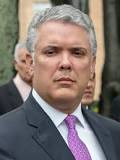Colombians in their thousands returned to the streets on Tuesday to protest against President Ivan Duque government’s new tax reform plan to Congress.
It would be recalled that tax reform was the issue that in April sparked mass nationwide protests that left more than 60 people dead and the government was accused of using excessive force to see through its fiscal reforms.
Colombians in several cities marked Colombia’s independence day by demanding police reform and greater support from the government in the wake of the Covid-19 pandemic, which has seen the poverty rate spiking from 37 to 42 percent in the country.
A 46-year-old dentist protesting in Bogota, Ivan Zapata, was quoted by AFP as saying that he hopes “that finally Congress will start to legislate in favor of the interests of all Colombians and not just a group of individuals that are getting rich.”
According to official reports, clashes between riot police and demonstrators, some armed with machetes, left dozens of civilians injured in the cities of Medellin and Cali, while 20 police officers were also injured.
Even then, the government described the protests as largely peaceful.
AFP further reported that the demonstrations were called by the influential National Strike Committee that represents indigenous people, trade unions and students, among others.
Reports had it that the group had suspended its protests on June 15 but vowed to kick them off again on the nation’s independence day with the aim of taking demonstrators’ demands to Congress.
Noelia Castro, a 30-year-old teacher in the capital was quoted as saying on the protests that “we’re fighting for the recognition of our rights to health, education, and no violence.”
The government presented a new tax reform plan to Congress on Tuesday which observers believe was devoid of the controversial clauses that caused such uproar three months ago.
The proposed increases in value-added tax on some goods and the broadened income tax paying base were removed in the latest proposal to Congress.
Instead, the new plan removes certain tax exemptions introduced by Duque himself in 2019, increases income tax for businesses and adds a three percent surcharge on the financial sector.
The plan aims to generate $3.9 billion, a long way shy of the $6.3 billion the government had hoped to raise through its previous plan that would have hit the middle classes hard.
The President while presenting the reform proposal to the Congress said: “We listen to the voices in the streets and they must nurture the debates, but you are called by history to be the spokespeople for a country in transformation.”
Despite the changes in the reform plan, many Colombians still see the proposals as cabable of adversery affecting them socio-economically if passed into law in its present form.






